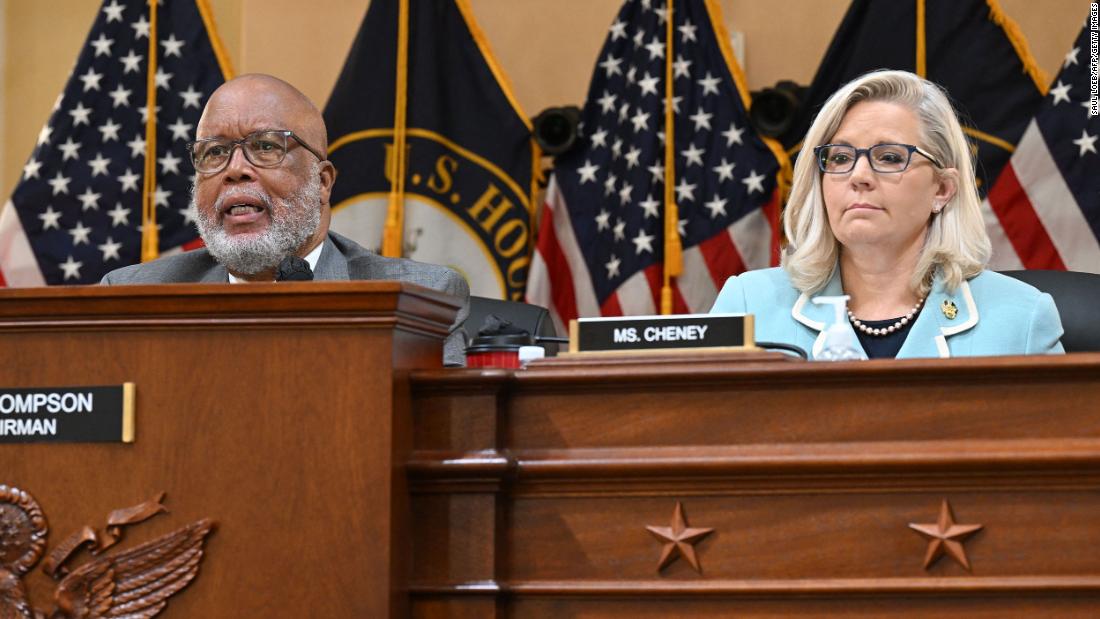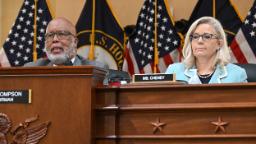

The corroboration comes as the committee plans to zero in on Trump’s conduct on January 6, 2021 at its hearing next week, which will focus on Trump’s response — or lack thereof — as rioters breached the Capitol walls and forced lawmakers to flee their chambers.
Select committee members have accused Trump of a “dereliction of duty” for failing to act as the Capitol was under attack — and his vice president, Mike Pence — was in danger. Next week’s hearing is the last planned of the committee’s eight public hearings as the panel has sought in each session to tie Trump to the deadly attack that unfolded on January 6.
“There will be a lot of information, a lot more clarity about the details of the things that happened that day, what the people who were working in the White House, working around the President and even people who were advising him to do things, actions that he was not taking based off of their reasoned advice,” Virginia Democratic Rep. Elaine Luria, who will help lead the next hearing, told CNN this week. “I look at it as a dereliction of duty. He didn’t act. He did not take action to stop the violence.”
Investigations surrounding Trump swirl
The January 6 committee is only one of Trump’s potential investigative concerns, even as he considers moving forward with a 2024 presidential campaign announcement.
And in Washington, DC, former Trump adviser Steve Bannon’s efforts to delay his contempt-of-Congress trial were rejected this week by a federal judge, and the trial is slated to begin next week.
Erased Secret Service texts raise new questions
There are also new questions that have emerged surrounding the Secret Service and January 6, amid a flurry of new questions over the agency deleting text messages on January 5 and 6, 2021 shortly after they had been requested by oversight officials.
The Homeland Security inspector general sent a letter to the House and Senate Homeland Security committees alerting them that the messages had been erased “as part of a device-replacement program” after the watchdog had requested electronic communications from the Secret Service.
The House Homeland Security Committee is chaired by Rep. Bennie Thompson, the Mississippi Democrat who also chairs the House select committee investigating January 6.
Thompson told CNN after the meeting that Cuffari said that Secret Service has not been fully cooperative. He added that the committee would work “to try to ascertain if those texts can be resurrected.”
According to a source familiar with the briefing, the inspector general told the panel the Secret Service did not conduct its own after-action review of January 6 and chose to rely on the inspector general investigation.
“We’ve had limited engagement with Secret Service. We’ll follow up with some additional engagement now that we’ve met with the IG,” Thompson said.
The Secret Service responded in a statement Thursday saying the “insinuation that the Secret Service maliciously deleted text messages following a request is false.”
“In fact, the Secret Service has been fully cooperating with the OIG in every respect — whether it be interviews, documents, emails, or texts,” the agency said.
Rep. Jamie Raskin, a Maryland Democrat on the Select Committee, said there seemed to be “contradictory statements’ between the inspector general and the Secret Service over whether the text messages were actually gone.
Explosive testimony corroborated
In her public testimony, Hutchinson said that then-White House deputy chief of staff Tony Ornato — who had previously worked for the Secret Service and then returned to the agency in 2021 — told her on January 6 that Trump was so enraged at his Secret Service detail for blocking him from going to the Capitol after his speech on the Ellipse that “he reached up towards the front of the vehicle to grab at the steering wheel.”
Hutchinson said that Ornato told her Trump “then used his free hand to lunge towards” his Secret Service lead agent, Robert Engel.
Hutchinson testified that Ornato told her the story in front of Engel and that Engel did not dispute the account.
Trump and his allies have tried to cast doubt on Hutchinson’s account — which included several additional damning details about Trump’s conduct. After Hutchinson testified, a Secret Service official who would not go on the record said that Engel would deny parts of the story and that the agents involved would testify publicly to that effect, though they haven’t gone back to the committee to testify.
Neither Engel nor Ornato have commented publicly.
But additional corroboration of Hutchinson’s account has emerged since her testimony. CNN reported earlier this month that two Secret Service sources have said they heard about Trump angrily demanding to go to the Capitol and berating his detail when he didn’t get his way.
The sources told CNN that stories had circulated about the incident following January 6, which included details similar to what Hutchinson described.
In addition, CNN reported on Thursday that a Metropolitan Police Department officer corroborated details of Hutchinson’s account and recounted what was seen to committee investigators.
CNN’s Zachary Cohen, Ryan Nobles, Annie Grayer, Jamie Gangel and Whitney Wild contributed to this report.